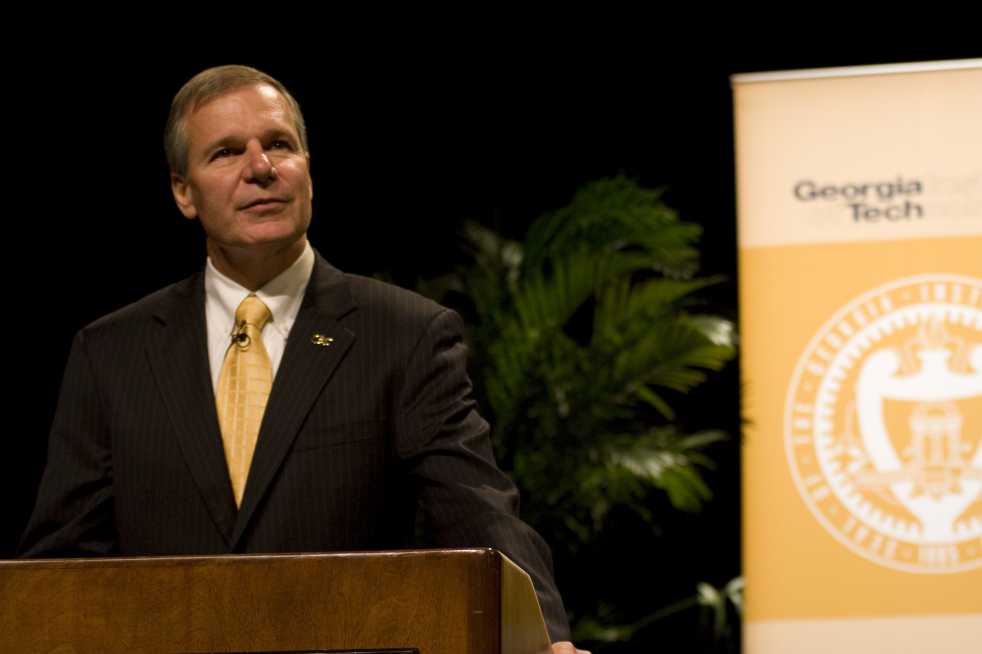Earlier this month, I was among more than 60 college presidents and other leaders in higher education who convened at the White House for a day-long summit on college access and success for low-income and disadvantaged students. It was jointly coordinated by the National Economic Council, the Domestic Policy Council and the Department of Education, with leadership and engagement from President Barack Obama and First Lady Michelle Obama.
The White House press release included commitments for new or enhanced programs from many of the colleges and universities represented.
Tech committed to delivering technology-assisted, college- level calculus courses to low-income high school students; providing additional opportunities for first-generation students at all levels to participate in off-campus programs of travel, education and research by awarding supplemental scholarships and expanding participation in our G. Wayne Clough Georgia Tech Promise program by 10 percent. This is all part of our continuing commitment to ensuring that a Tech education is within reach of every qualified student, regardless of family income.
By expanding the Tech Promise program through philanthropic partnerships, not only will the lives of these students be changed, but also those of generations to come.
Part of the conversation was about reaching young people earlier so that they can catch the vision for a college degree and begin to prepare accordingly.
Tech has numerous ongoing efforts to reach young people. Through Tech’s Center for Education Integrating Science, Mathematics and Computing, or CEISMC, the Institute is a leader in expanding K-12 STEM education, offering almost 30 different programs for thousands of students and teachers. CEISMC summer camp scholarships are offered to high-risk, high-need students.
Tech also works to impact the Hispanic STEM educational pipeline in metro-Atlanta through a philanthropic partnership and outreach to local schools, provides high school students throughout the state (including inner-city youth) with the opportunity to participate in experiments remotely using its high tech videoconferencing system, and provides mentors to students.
Tech offers a number of programs to enrich the educational experience of students who are among the first in their family to attend college.
For example, Coca-Cola/Sam Nunn School of International Affairs First Generation Scholarships have enabled these students to participate in international and off-campus experiences that they otherwise would not be able to afford.
To help meet the national priorities for more STEM degrees and to ensure that every student who matriculates at Tech (and wants to succeed) earns a degree, Tech has made undergraduate student success an Institute priority.
Over the last decade, we have put considerable resources into programs and services that enhance student success, and we are yielding results. For example, our freshman retention rate recently reached a record high of 96 percent, and our six-year graduation rate is at 82 percent.
We will build on that, working to sustain it, as well as improving access and completion for certain populations of students.
One of my takeaways from the White House summit was the power of partnerships—our colleges and universities, coupled with foundations and individuals who support programs like Tech Promise, are continuing to invest in your future and that of our state and nation.
